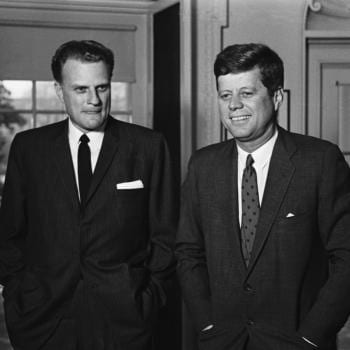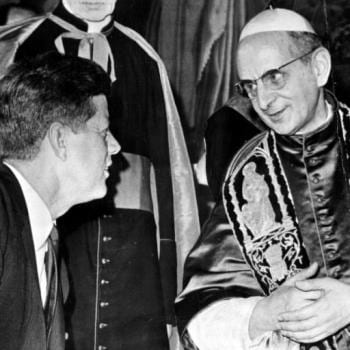Pope Francis’ encyclical on the environment has had trouble getting much attention what with the murders in Charleston, the debate over the Confederate Flag, and the Supreme Court’s ruling on the Affordable Care Act. But for all the competition in the headlines, Ross Douthat offers an interpretation that might endear the pope to all those Protestants who still have copies of Hal Lindsey’s The Late Great Planet Earth (I use the Pertinacious Papist’s digest of Douthat’s column to save my access to free articles at the Times):
Catastrophists, on the other hand, see a global civilization that for all its achievements is becoming more atomized and balkanized, more morally bankrupt, more environmentally despoiled. What’s more, they believe that things cannot go on as they are: That the trajectory we’re on will end in crisis, disaster, dégringolade.
Like dynamists, catastrophists can be on the left or right, stressing different agents of our imminent demise. But they’re united in believing that current arrangements are foredoomed, and that only a true revolution can save us.
This is Pope Francis’ position, and the controlling theme of his encyclical. It includes, as many liberals hoped and certain conservatives feared, a call to action against climate change, which will no doubt cause Republicans to squirm during political campaigns to come.
But reading “Laudato Si’ ” simply as a case for taking climate change seriously misses the depth of its critique — which extends to the whole “technological paradigm” of our civilization, all the ways (economic and cultural) that we live now.
… the encyclical’s most pungent lines are apocalyptic: “Doomsday predictions can no longer be met with irony or disdain. We may well be leaving to coming generations debris, desolation and filth.”
… its urgency, sweep, and apocalyptic flavor may make “Laudato Si’ ” more immediately influential, more likely to make both audiences think anew.
However, its catastrophism also leaves this pope more open to empirical criticism. For instance, he doesn’t grapple sufficiently with evidence that the global poor have become steadily less poor under precisely the world system he decries — a reality that has complicated implications for environmentalism.
Nor are questions related to population growth successfully resolved….
Finally, it’s possible to believe that climate change is happening while doubting that it makes “the present world system … certainly unsustainable,” as the pope suggests.












